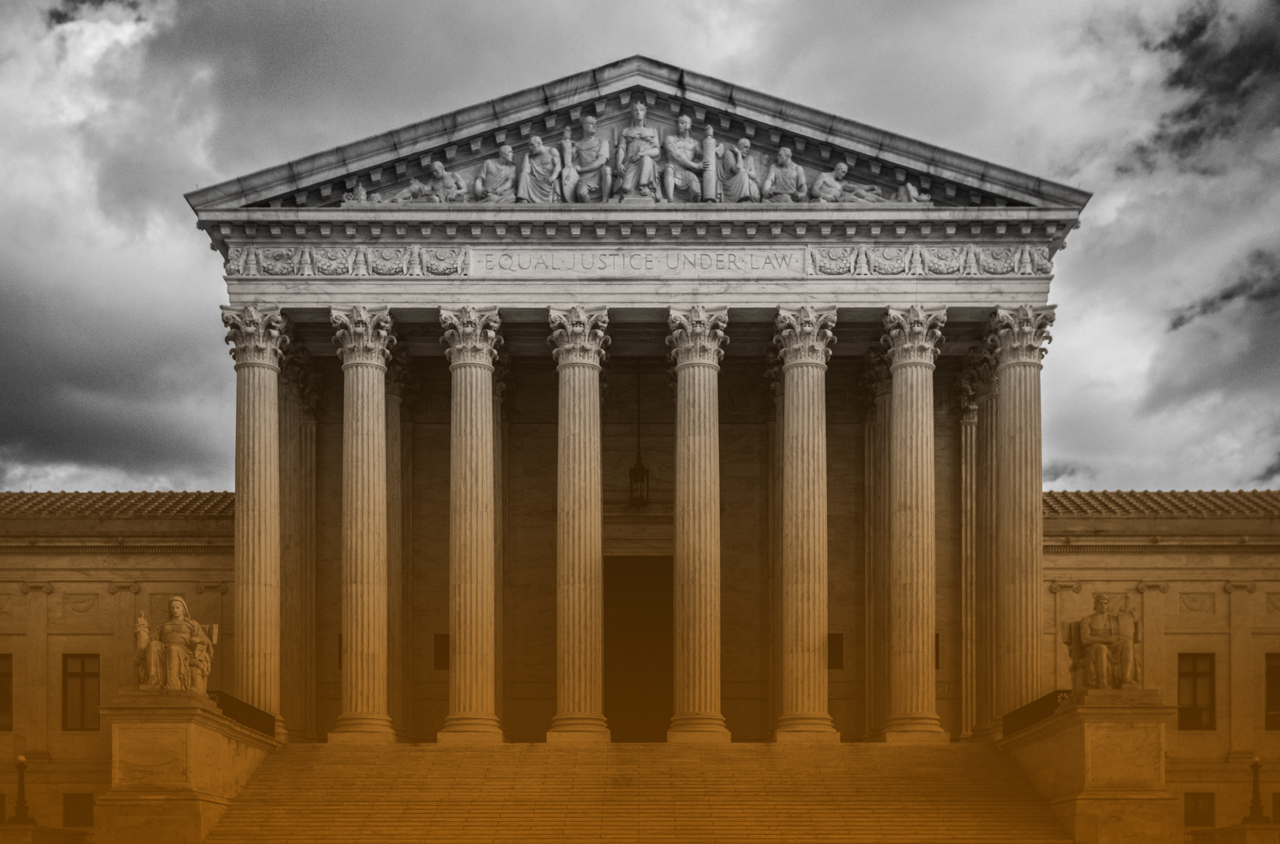Supreme Oligarchy: How Billionaires and the Supreme Court are Betraying the Promise of America
Bioneers | Published: August 19, 2025 Eco-NomicsJustice Podcasts
Author, broadcaster and scholar Thom Hartmann warns of the existential threat of a virulent new oligarchy: the third frontal assault by the ultra-wealthy in American history to use their concentrated economic power to seize maximum political power – and overthrow democracy once and for all.
Featuring

Thom Hartmann, a best-selling author who has written or contributed to over 50 books. Hartmann has been the #1 progressive talk show host in America for more than a decade and has co-written and been featured in 6 documentaries.
Credits
- Executive Producer: Kenny Ausubel
- Written by: Kenny Ausubel
- Senior Producer and Station Relations: Stephanie Welch
- Associate Producer: Emily Harris
- Producer: Teo Grossman
- Host and Consulting Producer: Neil Harvey
Resources
Thom Hartmann – Supreme Oligarchy at the Gates | Bioneers 2025 Keynote
Thom Hartmann – All Life Is Organized Around Democracy | Bioneers 2020 Keynote
Democracy v. Plutocracy: Behind Every Great Fortune Lies a Great Crime | Bioneers Podcast
Kenny Ausubel – Hostile Takeover | Bioneers 2025 Keynote
This is an episode of the Bioneers: Revolution from the Heart of Nature series. Visit the radio and podcast homepage to find out how to hear the program on your local station and how to subscribe to the podcast.
Subscribe to the Bioneers: Revolution from The Heart of Nature podcast
Transcript
Neil Harvey (Host): The fast-forward crumbling of American democracy didn’t happen overnight. The current wave of oligarchy was deliberately seeded in the 1970s. It comes in the historical wake of two previous swells in the concentration of political power by the wealthy that almost overcame the nation.
But the current wave is decidedly different. It’s a post-modern coalition of strange bedfellows loosely representing what arch-libertarian billionaire Peter Thiel calls “anarcho-capitalism”: capitalism without democracy.
At their most extreme, anarcho-capitalists have advocated that constitutions be replaced by contracts. People are no longer citizens of a place, but clients of a menu of corporate service providers. All services are purchased through the market, without a social safety net.
The endgame is to install corporate governance and techno-monarchy as the system for a society that operates on terms and conditions – not on democratic rights and obligations. White supremacy and patriarchy are features, not bugs, of anarcho-capitalism.
Thom Hartmann has long chronicled the peaks and valleys of American oligarchy. As North America’s leading progressive syndicated talk show host with a listenership of over 6 million, he has written or contributed to over 50 books. His Hidden History book series provides concise primers on topics including oligarchy and the Supreme Court.
As a scholar of American history, Hartmann points out that what’s old is new again. He spoke at a Bioneers conference…
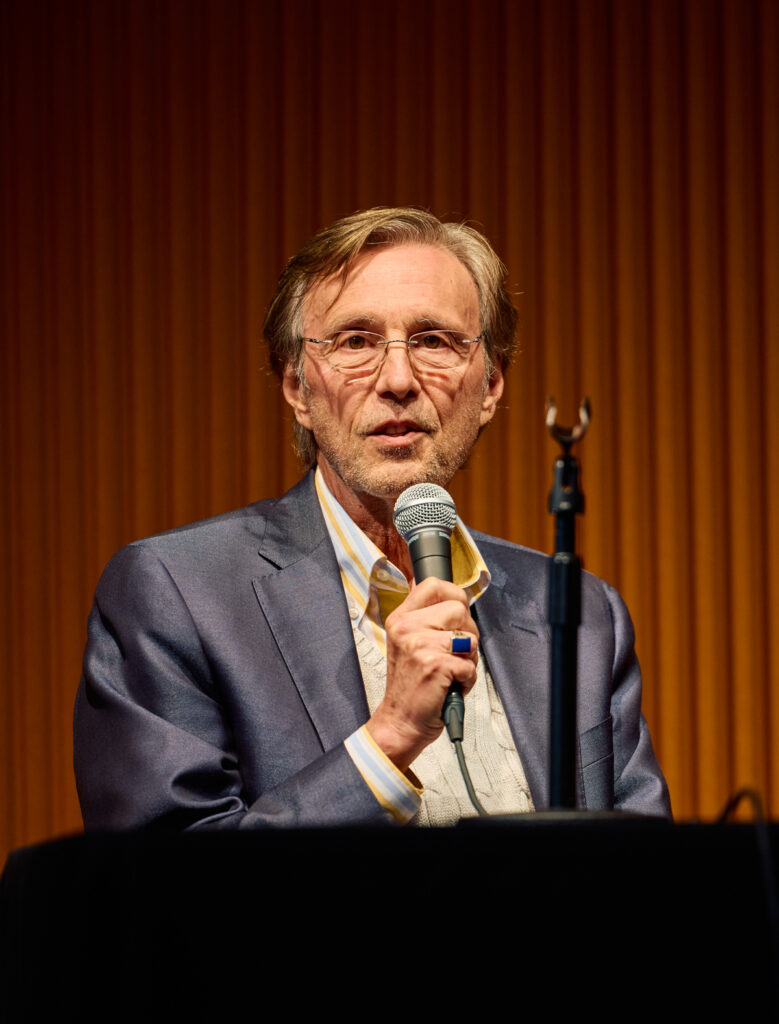
Thom Hartmann (TH): And so basically what happened was from 1815 to 1850, the entire South turned into an oligarchy. The cotton gin, one machine, could do the work of 50 enslaved people cleaning cotton, which was the most time-consuming part of the cotton process. They were also very expensive, these machines. So only the biggest plantations could buy them. And when they bought them, they could produce cotton at one-fiftieth of the price of the smaller farms and whatnot.
There was a handful of families, about 1,000 families across the South, who ended up controlling the entire political and economic life of everybody in the South. And even if you were white, if you defied them, you would get lynched. The elections had become a joke by the mid-1840s. And political opposition was absolutely not tolerated.
And then they declare war on us, on America, because, you know, we were talking about maybe that’s not such a good idea, not having a democracy down there. So that was the first collapse of an oligarchy.
Host: The second wave of American oligarchy arose after the Civil War with the political attack on Reconstruction, which enabled the resurgence of the Southern oligarchs. Concurrently, the onset of the Industrial Revolution gave rise to the colossal new fortunes of the Robber Barons.
TH: In 1876 you had the Tilden Hayes election, where Sam Tilden actually won the popular vote and won the Electoral College vote. But Rutherford B. Hayes became president. How did he become president?
They basically had three states – Oregon, Florida, and I think Georgia; there were three states anyway. Oregon was controlled by the Klan at the time, and the other two states, you know, this was post-Civil War—and these three states submitted two sets of electors, one for Hayes and one for Tilden. The Tilden ones were the legitimate ones, but Congress cut a deal, the Republicans in Congress and the Democrats cut a deal where they would end reconstruction, stab black people in the back, in exchange for making Hayes president. And that began the rise of a second big phase of oligarchy in the United States, which was through the Industrial Revolution.
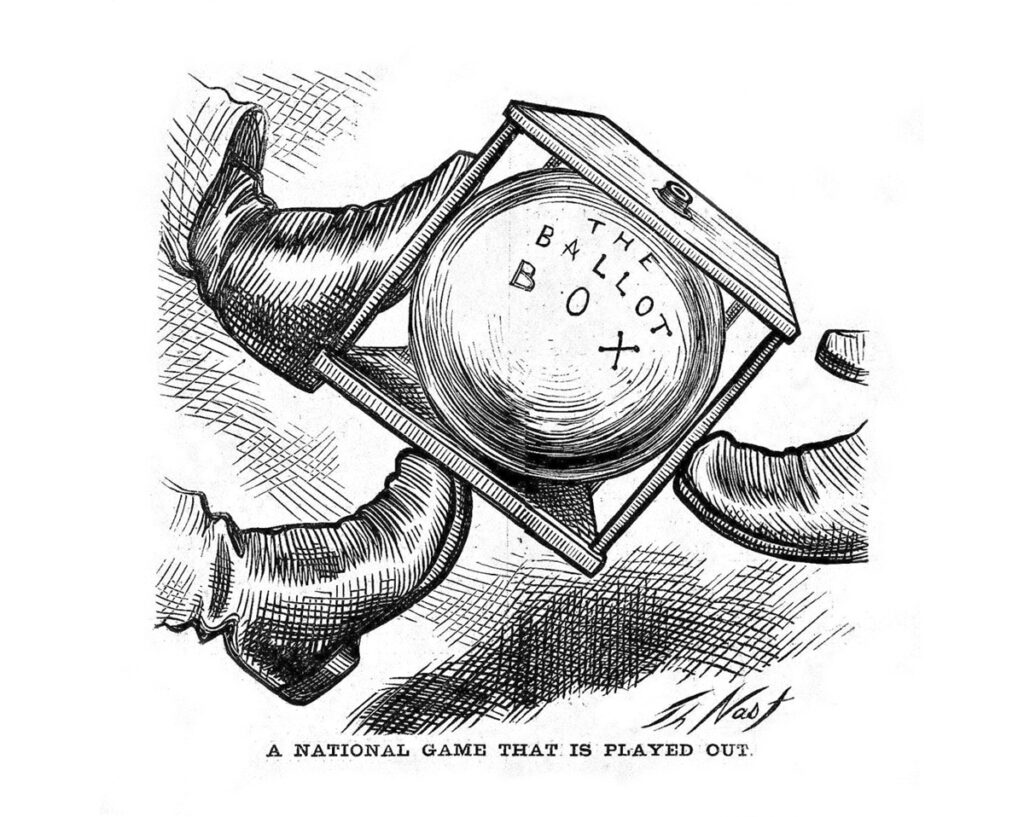
We started pushing back on that with the passage of the Sherman Antitrust Act, Teddy Roosevelt got the Inheritance Tax passed, he got the Tillman Act that outlawed federal donations to campaigns. And it made it a felony for any corporation, or any lawyer for any corporation, or any lobbyist for any corporation, or any executive in any corporation to give any money or anything of value to any candidate for federal office. Period. And so there was a small challenge against the rich, but they still had enormous power.
And when Warren Harding was elected in 1920, he had two slogans. One was “more business in government, less government in business”, which meant privatize and deregulate in today’s language. And his second one was “a return to normalcy”, which meant drop the top income tax rate from the 90 percent Woodrow Wilson had set it at down to 25 percent. He did both those things, and that led right straight to the great crash in 1929, and what was referred to up until the 1950s as the Republican Great Depression.
Big business had been riding high all this time, you know, from the start of the Republic until 1930, really, 1933. But the Republican Great Depression was such a shock, one-third of America was out of work. People were literally starving. The leading cause of death among older people was hypothermia in the winter and hunger in the summer. America was experiencing a full-blown crisis, and everybody was blaming business for it, because they knew the business speculators had caused this. It was no secret.
And then Franklin Roosevelt went after them, particularly after they tried to kidnap and assassinate him in 1933.
Host: This so-called “Wall Street Putsch” is seldom covered in U.S. history books. Marine Major General Smedley Butler, who would become the most decorated Marine in American history, alleged a coup by a shadowy corporate cabal to overthrow FDR. According to General Butler, J.P. Morgan, Irènee DuPont and other oligarchs approached him with a proposal. They had amassed a stockpile of weapons and the equivalent of $5 billion dollars to bankroll a coup d’etat. They wanted the General to lead an army of veterans and replace FDR.
Roosevelt was the target because he’d been working valiantly to save capitalism from itself by passing popular New Deal reforms such as social security, unemployment insurance, and the right to unionize.
But the oligarchs were even more horrified when FDR set his sights squarely on the real villain: concentrated wealth. He secured passage of the Securities Act to regulate the scam-ridden trading on Wall Street. The Glass Steagall and Securities Exchange Acts established the FDIC to protect people’s bank accounts and bar banks from engaging in out-of-control stock manipulations and speculative investments like the ones that caused the Great Depression in the first place. The corporate cabal hoped to reverse all these laws and programs by installing its own hand-picked President.
Instead, General Smedley blew the whistle and exposed them at a Congressional hearing in 1934.
Smedley Butler: I appeared before the Congressional committee to tell what I knew of activities which I believed might lead to an attempt to set up a fascist dictatorship.
The upshot of the whole thing was that I was supposed to lead an organization of 500,000 men, which would be able to take over the functions of government. My main interest in all this is to preserve our democratic institutions. I want to retain the right to vote. The right to speak freely and the right to write. If we maintain these basic principles, our democracy is safe. No dictatorship can exist with suffrage, freedom of speech and press.
TH: It was never clear whether he was supposed to be assassinated or simply kidnapped, but they were going to remove him from the White House and replace him with a good Republican who would restore democracy, because Roosevelt was acting like a dictator passing all these laws that nobody really wanted. And, you know, it got exposed. Smedley Butler blew the whistle. It was a two-week story in the papers. Congress tried to investigate it. Roosevelt shut down the investigation because he didn’t want people to get ideas, basically; he didn’t want it to go any farther. So Roosevelt started calling these people “economic royalists”, and he started just going after them.
Franklin D. Roosevelt: These economic royalists complain that we seek to overthrow the institutions of America. What they really complain of is that we seek to take away their power. Our allegiance and our allegiance to American institutions requires the overthrow of this kind of power.
TH: FDR was taking it to them. And so what happened was the economic royalists said screw this stuff, we’re just going to go back to making money. And so, basically, all the big businesspeople just checked out of politics for two generations, you know, from the ‘30s right up until the ‘70s.
Host: That economic interval from the ’30 to the ‘70s saw the creation of a flourishing American middle class accompanied by a significant reduction in economic and social inequality. Yet despite some real gains, Black Americans, other people of color and women remained far from equal. Soon came the explosive social and political revolutions of the 1960s for civil rights, racial justice, feminism, worker’s rights, and environmentalism.
By the mid- ‘60s, the public view of big business had hit rock bottom. Predictably, an oligarchic backlash began to take shape.
TH: If you look at the period of time from the 1930s until the 70s, late 1970s, we got a hell of a lot done, and it was the stuff that people wanted done. People wanted unemployment insurance. People wanted the right to unionize. People wanted Medicare. People wanted Social Security. People wanted the government building low-income housing. People wanted the government upgrading our infrastructure, our roads and bridges and things. People wanted a national railroad system, you know, like Amtrak. And people wanted the Civil Rights Act. People wanted everybody to be able to participate in our politics. People wanted the Voting Rights Act. We wanted all those things, and we got all those things. I mean, when you think about it, that period was really an astonishing period in American history, how much we got done.
And then in 1971, this tobacco lawyer from Virginia, very soft-spoken man, Lewis Powell, big corporate lawyer. Right? He wrote this memo to his best friend who was the leader of the U.S. Chamber of Commerce, that said we’ve seen this steady rise of basically Communism since FDR became president, and it is not stopping – and many argue that the thing that really set him off was the Civil Rights Act of 1965.
So, what Powell said was we need to take over the courts; we need to take over the educational institutions, particularly the colleges, seize the legislature; and we need to build our own media. It was a blueprint, the Powell Memo, 1971. You can read it, it’s online.
That was when business decided we’re going to wake the hell up. And so what happened was throughout the ‘70s, the children of Fred Koch, and others, other right-wing billionaires, decided, cool, let’s do this. And so they built the Heritage Foundation, and they built the Mercatus Institute, and they built the Cato Institute, and they built the American Legislative Exchange Council, and they built 50 state policy centers, one in every state. And they started buying media, buying radio and television stations, buying newspapers, just built this huge right-wing infrastructure through the ‘70s.
Host: Over these 50 years, the right-wing oligarchy systematically built the infrastructure that would fulfill Lewis Powell’s vision. Big business rebranded itself as the Statue of Liberty of so-called “free enterprise.” It falsely conflated unfettered capitalism with personal liberty and democracy. It was a clarion call to roll back the gains of the New Deal and the 1960’s social revolutions – and to regain the political supremacy of capital.
When we return, how today’s insatiable oligarchs and the Supreme Court have masterminded a power grab to reprogram the best government money can buy for capitalism without democracy.
Host: In 1972, one year after Powell penned his memo, President Nixon quietly appointed him to the Supreme Court before the public was aware of his memo or his secretive agenda. Powell knew that control of the Supreme Court was the golden key to lock supreme oligarchy into law.
The secret sauce was money, money, money.
Again, Thom Hartmann.
TH: In 1976, William F. Buckley, the guy who published the National Review, his brother was running for the United States Senate—and the Buckley family is very wealthy, or was; they’re both passed away now. And his brother wanted to fund his own campaign, but the campaign finance laws said you couldn’t do that; there were campaign finance limits. The specific one that he was objecting to was in response to the Nixon bribery scandals and everything that was going on there that limited campaign donations to $2,000 or $3,000 per person. So, he sued and took it to the U.S. Supreme Court.
And a group of Republicans on the Supreme Court decided, for the first time in American history, out of thin air—you will not find this anywhere in the Constitution—that when somebody spends money on a political campaign, they’re buying advertising, that advertising is putting their voice on the air, therefore, that money is a proxy for their voice, therefore, that money is protected by the First Amendment as free speech. This decision was called Buckley vs. Vallejo, and that was the first chink in the wall. Now it didn’t just blow the doors open to everybody’s money, it just let rich people finance their own elections.
That was followed two years later by a far more egregious Supreme Court decision, First National Bank vs. Bellotti. There was a law in Massachusetts that said that if you were a corporation, you could not give money to political campaigns unless they directly affected your business. And the First National Bank of Boston decided that they wanted to help fund a campaign around a politician who was supporting the end of abortion in the United States. This was right after Roe v Wade. And so they contributed money into this. So the attorney general of Massachusetts, Frank Bellotti, sued them. First National Bank of Boston vs. Bellotti went to the Supreme Court. Lewis Powell actually wrote this decision. Nixon put him on the Supreme Court in ‘72.
And five Republicans on the U.S. Supreme Court said that not only is money speech, but corporations are also persons. Now this had been intimated back in 1886 in a case that I actually wrote a book about called Unequal Protection, Santa Clara County vs. Southern Pacific Railroad. But in fact, the court never decided that; they never ruled that. It was simply put into the headnote by the clerk of the court. With the Bellotti case, the Supreme Court said this is absolutely the case. Corporations have rights under the Bill of Rights.
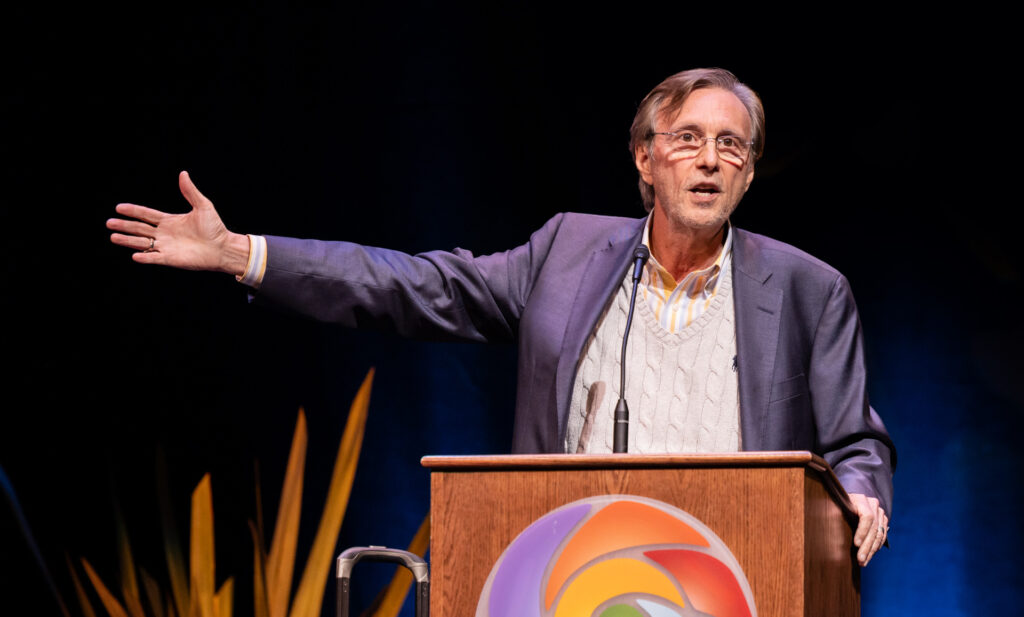
And over the next decade or so we saw a couple of things happen. First off, Ronald Reagan washed into the White House on a tsunami of oil industry money in 1980. The Supreme Court ruled that – I believe it was DuPont, it was one of the big chemical companies – they had been emitting, illegally emitting, benzene, and they’d been doing it through the roof, thinking that they were getting really slick, nobody would catch them. And so the EPA flew an airplane over their roof with a benzene sensor and busted them. They sued. The Supreme Court said, oh no, you can’t do that EPA, DuPont has—or whatever the company was—Fourth Amendment rights of privacy because they’re a person.
Corporations were no longer being forced to testify about their own crimes in court because they had Fifth Amendment protections against self-incrimination. Corporations could now advertise, they could throw money at politicians, all these sort of things. So this, then, began the really serious money corruption of politics in the United States, these two decisions and the Reagan revolution.
From there, we fast forward to 2010, Citizens United, and the Supreme Court ruled that it’s not just rich people who can throw money into campaigns, in fact, we’re going to blow up virtually all campaign limits by creating Super PACs. There are still campaign limits. You can only give a certain amount of money to an individual candidate, but you can give a billion dollars to their Super PAC.
Host: The Supreme Court didn’t always have this kind of power. From the very beginnings of the Republic, the government was structured to have so-called checks and balances among what were designed to be three co-equal branches of government.
At the heart of the power grab is a controversial doctrine called “judicial review.” It asserts that the Supreme Court can pass judgement on constitutional issues and override laws passed by Congress. It appears nowhere in the Constitution, and it was a fierce debate that confounded the Founders. From the outset, they were deeply concerned about the co-equal role of the Court.
TH: Back when the Supreme Court was literally being created, when the Constitution had been written in 1787, and they were selling the thing—Alexander Hamilton and James Madison wrote a series of papers called the Federalist Papers as a sales pitch for the Constitution. People were concerned about the Supreme Court having too much power—he said “in the first place there’s not a syllable in the plan under consideration, the Constitution, which directly empowers the national courts to construe the laws according to the spirit of the Constitution, or which gives them greater latitude in this respect and may be claimed by the courts of any state.”
So here’s Hamilton saying, no, the Supreme Court can’t do that; don’t worry. And in fact, the Supreme Court is subordinate to Congress. This is Article 3, Section 2 of the Constitution, which is our law right now. “The Supreme Court shall have appellate jurisdiction”—in other words, it’s the final court of appeals, “both as to law and effect—with such exceptions and under such regulations as the Congress shall make”.
Sounded good. You know? We’re going to have the courts as the final court of appeals, Congress, you know, has some control over this; yes, we can have voices if things are out of control. I’m not completely opposed to judicial review, and neither, frankly, was Hamilton. In fact, in other places in Federalist Papers he argued for judicial review.
But in 1803, the Supreme Court, in a decision called Marbury vs. Madison, without the whole long background description, ruled that they could strike down laws that had been passed by Congress, which was kind of the beginning of this process. And it wasn’t entirely unreasonable.
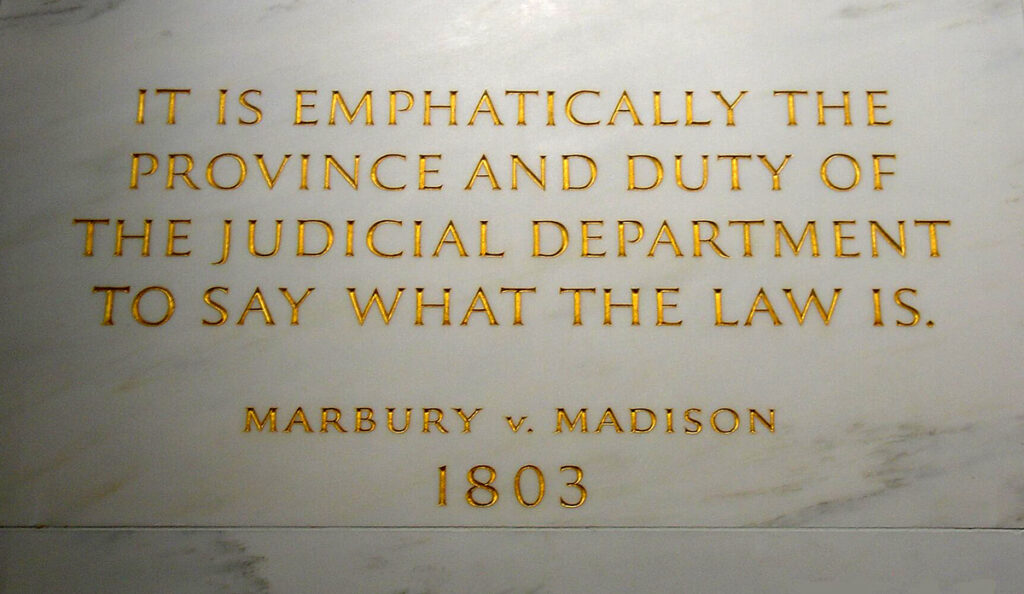
But Thomas Jefferson, who was president in 1803, went absolutely nuts. He wrote a letter to his old friend Judge Spencer Roane of the son-in-law Patrick Henry. He said “if this opinion be sound, then indeed is our Constitution a complete felo de se,” which is Latin for suicide pact, “for intending to establish three departments coordinate and independent that they might check and balance one another, given according to this opinion that one of them alone the right to prescribe for the government of the others, and that too which is unelected by the nation is that the Constitution on this hypothesis is a mere thing of a wax in the hands of the judiciary, which may twist or shape it in any form they please. My construction of the Constitution is very different from that, you quote. Each department is truly independent of the others and has an equal right for itself. What is the meaning of the Constitution? And a judiciary independent of a king or executive alone is a good thing, but independent of the will of the nation is a solecism, a blunder, at least in a Republican government.” But it stood. It stood.
But there was such a blowback in 1803 to this that the next time the Supreme Court actually ruled based on the Constitution was long after Jefferson was dead. It was 1856, and the decision was Dred Scott, which ruled that all across America,, including the North, Black people could be claimed as property by white people; that they had no rights of citizenship. If ever there was an example of the insanity of this decision, which led us straight to the Civil War.
So really, from that period of time up until arguably the 1940s, 1950s, very rarely did the Supreme Court strike down laws based on the Constitution. Very rarely did they create things out of whole cloth saying they were doing it under the Constitution. But they really started doing this aggressively after the Reagan revolution. Antonin Scalia, the Supreme Court justice, was one of the real leaders of this.
And this is what led us to this series of decisions in 1976. ‘78, 2010, and then McCutcheon in 2013, that said that unlimited money, no problem. They said that they found this in the Constitution. There is literally not one single word in the Constitution that says this.
I mean, the simple reality is there’s a whole long list of things that most Americans want—solidifying Social Security; expanding Medicare and Medicaid; building good, high-quality public schools; free college education for everybody; a national healthcare system that works. All of these things poll 70/80 percent. And yet we don’t have them. Why don’t we have them? Because of big money. Why does big money have that kind of power? Because of these Supreme Court decisions.
Host: By 2025, the once favorable public view of the Supreme Court had plummeted to the lowest in history. It was mocked as the best court money could buy. The Court’s constitutionally rogue behavior highlighted its flagrant abuses of the made-up doctrine of judicial review.
Fifty years after the Powell memo, the Funding Fathers had captured the Court to reprogram the nation for capitalism without democracy – aka oligarchy.
Yet at the same time, the prominent legislators Senator Bernie Sanders and Congresswoman Alexandria Ocasio-Cortez were attracting record-shattering crowds of 30,000 trans-partisan citizens to their “Fight the Oligarchy” national tour. The word “oligarchy” entered the national conversation.
As the United States approached the 250th anniversary of the American Revolution, the Republic faced a reckoning in the throes of a hostile takeover by the same kinds of imperial monarchs and oligarchs the rebels once fought to overthrow.
The question, says Thom Hartmann, is whether sufficient forces in the country will mobilize to defeat this supreme oligarchy and reclaim democracy.
TH: We need to show up. We need to stand up. We need to speak out. We need to get on social media and absolutely raise hell, even though the algorithms are against us. Right? Social media-owned by billionaires also, because we’re not enforcing the Sherman Antitrust Act anymore. I mean, the insanity that we are facing as a consequence of these four decisions by five Republicans on the Supreme Court in every case is absolutely overwhelming, and we’ve got to defeat it. So please, get active. Thank you so much. [APPLAUSE]
Host: Thom Hartmann, “Supreme Oligarchy: How Billionaires and the Supreme Court are Betraying the Promise of America”.

